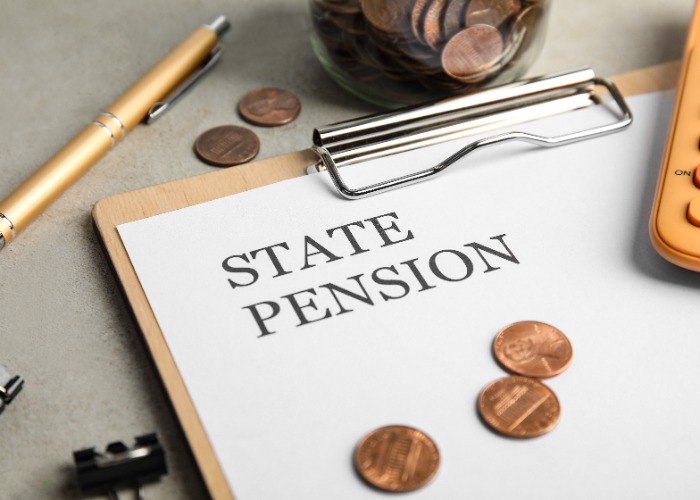State Pension triple lock 8.5% hike confirmed – but will Government intervene?

There are rumours the planned State Pension pay rise could be downgraded to save the Government almost £1bn.
Retired households are set for a second bumper pay rise next April.
The rate at which the State Pension increases is currently determined by what’s known as the triple lock.
This dictates that it will increase each year by the highest out of three separate figures: the CPI measure of inflation in September, average earnings between May and July and 2.5%.
After CPI was confirmed at 6.7% this morning, it is the earnings figure of 8.5% that will determine the triple lock hike for 2024/25 as expected.
This would take annual New State Pension pay from £10,600 to £11,501 and the Basic State Pension from £8,122 to £8,812, following on from the record 10.1% increase rolled out in April 2023.
While this would obviously be welcome news for retired households whose finances have been battered by the cost of living crisis, it’s important to note that the final increase might be slightly lower than the figure promised by the triple lock.
Government looking to tweak earnings figures
The Government is under huge pressure to keep its promise of retaining the triple lock until at least the next election.
However, it is reported to be mulling over a change that would allow it to save nearly £900 million and still technically achieve that goal.
It would do this by tweaking what it considers to be the final figure for earnings between May and July.
Crucially, the wage figure that has long been used includes bonus payments that workers receive.
If it chooses to strip this out and focus solely on core wage rises, the increase falls from 8.5% to 7.8%.
As Helen Morrissey, head of retirement analysis at Hargreaves Lansdown, explains:
“The (8.5% figure) has been swollen by the impact of one-off payments given to civil servants and NHS workers over the Summer, so we may see the Government look to take a slightly different course.
“Average wage rises excluding bonuses remain at 7.8% and, if the Government adopted this figure, it could make a saving on its State Pension bill while also delivering what should be an inflation-beating increase for pensioners.
“We have seen triple lock tinkering in the past, with the Government opting for a double lock option during the pandemic when wage data was seen to be unfairly inflated by furlough.
“In the face of a rapidly rising bill, there’s every chance Government could look to do so again."
Speaking of the double lock, it’s possible the Government could choose to repeat that trick of two years ago.
That would see it ignoring wages altogether and focusing instead on the higher of inflation and 2.5%, which would be the former at 6.7%.
When will we know if the State Pension triple lock is changed?
We have no way of knowing whether the Government will tinker with the triple lock at all.
However, if we do see any changes, they’ll likely be announced in late November or early December.
On 22 November, Chancellor Jeremy Hunt will deliver his Autumn Statement speech, where he’ll outline the Government’s financial plans for the coming year.
If there is no announcement there, keep an eye out for the Government releasing its benefits uprating briefing.
Last year this was published on 1 December, so it will likely be released at a similar time this year.
What would changes to the triple lock mean for State Pension pay?
If the triple lock is left unchanged, then an 8.5% increase will result in a £901 boost to annual State Pension payments in 2024/25.
If, however, it opts for the lower earnings figure of 7.8% then the increase will be reduced to £827.
Should it choose the more drastic option of ditching earnings in favour of a ‘double lock’ that increased by the rate of inflation, that would mean a rise of £710.
Regardless of how much the State Pension rises by, it’s important to factor in the implications for your tax bill in the new tax year.
Comments
Be the first to comment
Do you want to comment on this article? You need to be signed in for this feature
